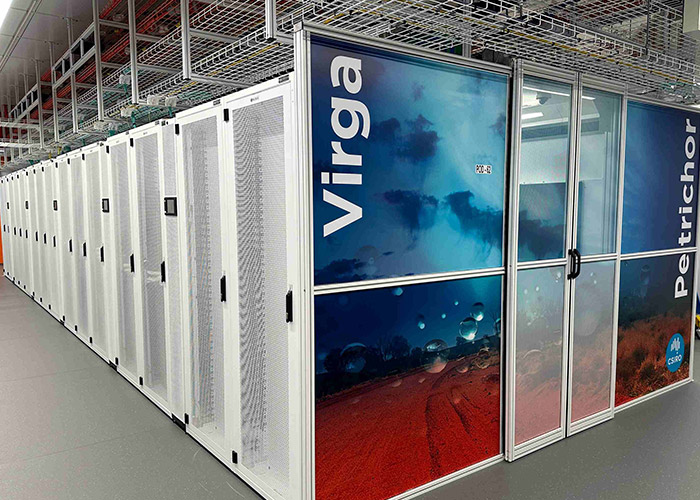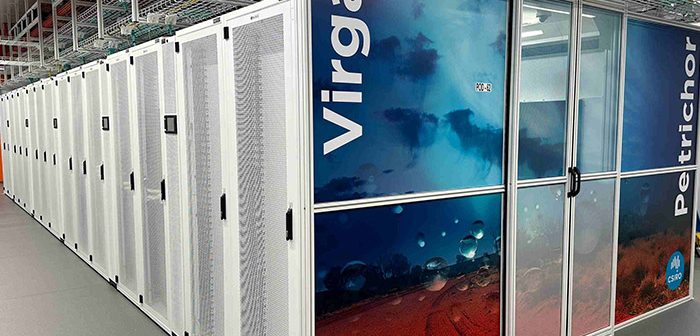
The CSIRO has developed a high-performance computer (HPC) system in conjunction with Dell Technologies, which it says will speed up scientific discoveries and help grow Australia’s industry and economy.
Named Virga, the HPC system is built on state-of-the-art Dell PowerEdge XE9640 servers and is the first deployment of its kind in Australia. It is designed to optimise artificial intelligence (AI) workflows while also being power-efficient using direct liquid cooling. Virga is housed at CDC’s Hume Data Centre in Canberra.
Professor Elanor Huntington, CSIRO’s Digital, National Facilities and Collections Executive Director, said Virga will provide the critical computing infrastructure needed for machine learning and AI to grow Australia’s industry and economy.
“CSIRO is proud to be a steward of some of Australia’s most important pieces of research infrastructure,” she said. “High-performance computing systems like Virga also play an important role in CSIRO’s robotics and sensing work and are crucial to the recently launched National Robotics Strategy to drive competitiveness and productivity of Australian industry.”
Dr Jason Dowling from CSIRO’s Australian e-Health Research Centre said the increase in medical imaging data coupled with the growing complexity of diagnostic techniques has led to an urgent need for advanced computational power and data processing for medical image analysis.
“The new HPC facilities will allow researchers in our Australian e-Health Research Centre to train and validate new computational models, which will help us develop translational software in medical image analysis for image classification, segmentation, reconstruction, registration, synthesis, and automated radiology reporting,” he said.
The Virga cluster features:
-
NVIDIA H100 Tensor Core GPU accelerators to support deep learning, machine learning and AI;
-
94GB of high-bandwidth memory per GPU;
-
Transformer Engine – significantly speeds up AI performance and capabilities and helps train large models within days or even hours;
-
4th Gen Intel® Xeon® Scalable processors; and
-
Hybrid direct liquid cooling to reduce the need for energy-intensive air cooling.
Dell’s Australia and New Zealand Senior Vice President and Managing Director Angela Fox said the Virga AI system can examine large volumes of scientific data and help researchers improve their models.
“Dell Technologies provides organisations with solutions and expertise that accelerate AI and bring value to their data,” she said. “With Dell PowerEdge servers as the foundation, Virga will help create new Australian scientific breakthroughs using its AI capabilities, all the while being both more sustainable and more energy efficient than previous generation clusters.”





